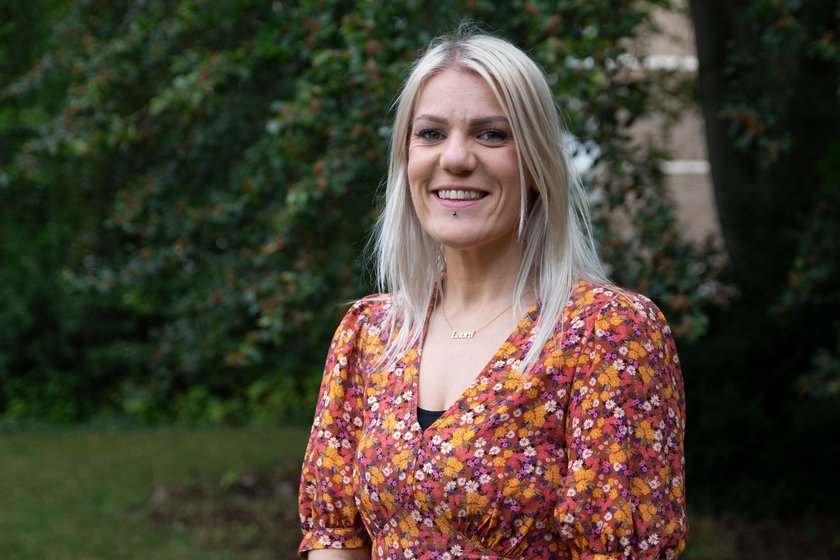Breakthrough research led by Addenbrooke's Hospital gives IBS patients like Laura Tebbs a better understanding of their condition.

Irritable bowel syndrome (IBS) is a common condition world-wide, affecting around one in 10 people and causing a wide range of symptoms including abdominal pain, bloating and bowel dysfunction.
The study involved over 40 institutions and looked at genetic data from more than 50,000 people with IBS and compared it to more than 400,000 people without the condition.
It found that people at greater risk of IBS were also at greater risk for common mood disorders, such as anxiety, depression, neuroticism and insomnia.
However, researchers stress this doesn’t mean anxiety causes IBS symptoms or vice versa.
Prof Miles Parkes explains how the study could lead to better treatments for IBS
Link: https://youtu.be/L6VbxfvHhW8
IBS ruined my life earlier this year, I couldn't leave the house I was in so much pain
Laura Tebbs, CUH IBS patient
Laura Tebbs has lived with anxiety for some time and was diagnosed with IBS earlier this year after recovering from Covid. She says the impact on her life was dramatic but she struggled to get the treatment she needed initially:
"I was told it was just IBS and to take laxatives but this just made my symptoms worse.
Being treated by Prof Parkes has made a big difference and this research means I now have a better understanding of how anxiety and IBS can be linked.
I hope it leads to improvements in treatment and people like me feeling less embarrassed about having IBS."
These conditions have shared genetic origins, with the affected genes possibly leading to physical changes in brain or nerve cells that in turn cause symptoms in the brain and symptoms in the gut
Professor Miles Parkes, consultant gastroenterologist CUH
CUH consultant gastroenterologist Professor Miles Parkes led the study. He said:
“IBS is a common problem, and its symptoms are real and debilitating. Although IBS occurs more frequently in those who are prone to anxiety, we don’t believe that one causes the other."
The research, published today in the journal 'Nature - Genetics' found six gene variations which are more common in people with IBS.
These genes are either expressed in brain tissue or in nerves within the gut. They influence the development of brain structures and white matter and are also altered in people with anxiety and other mood disorders.
The study also found that people with both IBS and anxiety were likely to have been treated more frequently with antibiotics during childhood.
More information on IBS
IBS symptoms include abdominal pain, bloating and bowel dysfunction and can significantly affect people’s lives.
Diagnosis is usually made after ruling out other possible conditions (such as Crohn’s disease or bowel cancer), with clinical tests coming back ‘normal’.
Current treatments vary widely and can include dietary changes or prescription of medications targeting the gut or brain and behavioural interventions.
The causes of IBS are not well understood, but this latest research provides clues into the origins of IBS and paves the way for the development of new treatments.

